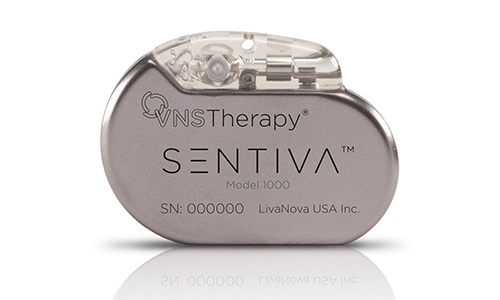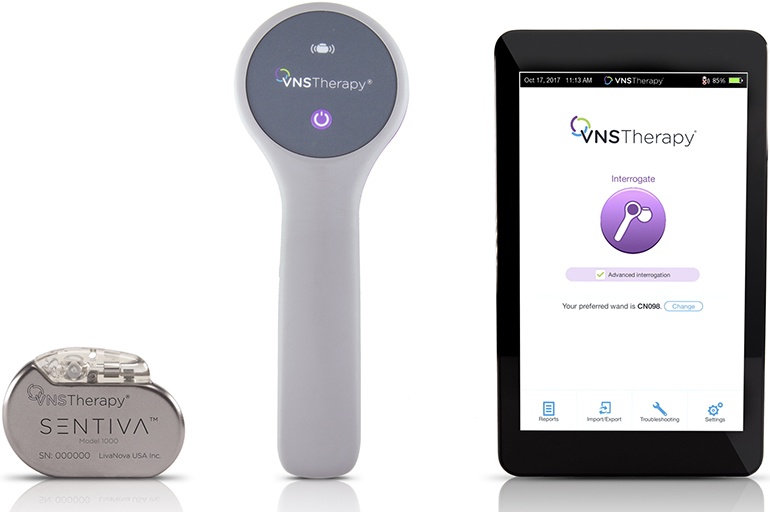
LivaNova SenTiva VNS
Image Credit: LivaNova
Back in July, 2005, the FDA approved Cyberonics (now LivaNova) VNS implant for patients with chronic or recurrent depression, either unipolar or bipolar, with a history of failure of the depression to respond to at least four antidepressant interventions.
However, the U.S. Centers for Medicare & Medicaid Services (CMS) declined covering VNS for serious depression. CMS concluded back in 2007 that VNS’ effectiveness was not compelling enough to expand coverage, leaving drug-resistant epilepsy as its only covered indication.
Ten years later LivaNova presented data from a five-year study of VNS for treating TRD which showed that patients with chronic moderate to severe TRD experienced anti-depressant effects at a significant rate when treated with the therapy.
In response, last month (February 2019) CMS said:
“Based on the evidence, we believe that VNS for TRD seems promising but not convincing.” “To ensure benefits to Medicare beneficiaries we are proposing to cover VNS for the treatment of TRD when offered in double-blind, randomized, placebo-controlled studies.”
The primary endpoint will be scoring on the Montgomery Åsberg Depression Rating Scale, as well as disability assessments, and adverse event monitoring. Additional physical and mental health assessment criteria are also planned.
Just a few days ago, on March 27, 2019 it was disclosed that the trial will require a sham-control arm, doubling the subject population LivaNova originally expected. LivaNova had planned for a 500-patient trial, but this will double the subject population to 1,000.
LivaNova expects to start the trial this July. All subjects will be implanted with the IPG, but the sham-control subjects will have the device off for the first 12 months. After that point, sham subjects will be allowed to continue into the 5-year, open-label, prospective phase of the study.
LivaNova’s website: https://us.livanova.cyberonics.com

LivaNova SenTiva VNS System
Image Credit: LivaNova
